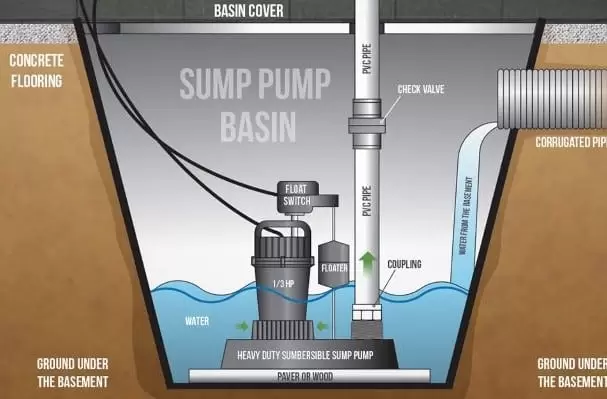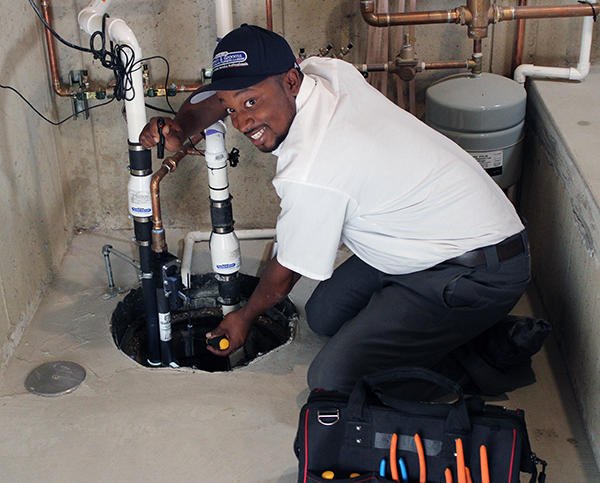Simple And Easy Well Pump Replacement: Renewing Your Water Infrastructure with Confidence
Simple And Easy Well Pump Replacement: Renewing Your Water Infrastructure with Confidence
Blog Article
Comprehending the Key Components of Effective Water Purification Solutions

Significance of Water Filtration Equipment
Water purification systems play an essential duty in guaranteeing access to risk-free and tidy drinking water by efficiently eliminating pollutants and impurities. These systems are essential in resolving the expanding worries over water quality and the possible wellness threats related to consuming infected water. By utilizing various filtering systems such as reverse osmosis, triggered carbon, and UV sterilization, water filtering systems can successfully eliminate harmful substances like bacteria, viruses, hefty metals, and chemicals from the water system.
Moreover, water filtering systems assist to enhance the taste and odor of water by eliminating chlorine, sediments, and other pollutants that can affect its quality. Water Treatment. This improvement in water quality not only makes it more palatable however likewise encourages individuals to drink an ample amount of water daily, promoting much better hydration and overall health and wellness
Kinds Of Filtering Components

Physical filters are made to literally strain out contaminations from the water. These filters can be made of materials like ceramic, carbon, or also sand, and they function by capturing bits bigger than the filter's pores as water travels through.
Chemical filters make use of various chemical processes to get rid of impurities from the water. Instances consist of activated carbon filters, which adsorb pollutants, and reverse osmosis membranes, which use stress to different contaminants from the water.
Biological filters utilize living microorganisms like algae or microorganisms to break down raw material and toxins in the water. These filters are usually used in wastewater treatment plants or all-natural water purification systems.
Comprehending the different kinds of filtration parts is vital for choosing the most suitable water purification system for specific purification requirements.
Feature of Debris Filters
Sediment filters play a crucial duty in water filtration systems by successfully recording strong particles put on hold in the water. These filters are commonly the first line of defense in a filtration system, eliminating larger particles such as sand, silt, dust, and rust prior to the water moves through finer filtering phases. By capturing these debris, the filters stop them from reaching downstream components, hence prolonging the lifespan and performance of the entire system.
The feature of sediment filters is important in keeping water quality and protecting sensitive devices from damages triggered by debris. In addition, by removing noticeable bits, sediment filters improve the clearness and taste of the water. On a regular basis cleaning or changing sediment filters is vital to make sure optimal performance. Overlooking this upkeep can result in obstructing, decreased water flow, and compromised purification effectiveness. On the whole, sediment filters are vital components that contribute dramatically to the efficiency of water purification systems.
Role of Triggered Carbon Filters
Playing a vital function in water filtration systems, turned on carbon filters contribute in removing pollutants and contaminants from the water system. These filters are developed to adsorb and catch a vast array of pollutants, consisting of chlorine, volatile organic compounds (VOCs), chemicals, and herbicides. The activated carbon product has a large area, enabling the efficient trapping of pollutants with a process called adsorption. As water travels through the filter, the turned on carbon holds and draws in onto the contaminations, ensuring that the water that comes out on the other side is cleaner and safer for consumption.
Activated carbon filters are very effective at enhancing the preference and smell of water by reducing chemicals that can influence its high quality. Due to their convenience and integrity, turned on carbon filters are a crucial component in guaranteeing that water is purified to the greatest requirements prior to reaching consumers.
Understanding Reverse Osmosis Solutions
Reverse osmosis systems are advanced water purification systems that employ a sophisticated process to get rid of impurities and contaminations from drinking water. These systems important link function by using pressure to the water, requiring it with a semi-permeable membrane layer.
One trick benefit of reverse osmosis systems is their ability to get rid of a variety of contaminants, consisting of hefty steels, dissolved microorganisms, infections, and solids. This makes them highly effective in enhancing the overall top quality and safety of alcohol consumption water. Furthermore, reverse osmosis systems are reasonably low-maintenance and can be mounted under the sink or in a central filtering system, offering convenient access to clean water throughout the household. Overall, comprehending helpful resources how reverse osmosis systems function can help people make educated choices regarding their water purification needs.
Verdict
To conclude, efficient water purification systems are critical for making certain tidy and risk-free alcohol consumption water. The crucial parts of these systems include debris filters, triggered carbon filters, and turn around osmosis systems. By understanding the function and duty of each component, individuals can make educated choices when picking a water purification system. It is very important to focus on the high quality of water in order to promote general wellness and well-being.
Water filtering systems play a crucial role in making certain access to clean and secure alcohol consumption water by successfully getting rid of contaminations and impurities. By using different purification systems such as reverse osmosis, activated carbon, and UV sterilization, water purification systems can successfully get rid of harmful substances like bacteria, viruses, hefty metals, and chemicals from the water supply.
Sediment filters play an essential role in water filtration systems by successfully catching solid fragments put on hold in the water (Water Treatment).Playing a vital function in water filtering systems, triggered carbon filters are crucial in eliminating contaminations and impurities from the water supply.Reverse osmosis systems are advanced water purification systems that use an innovative procedure to eliminate pollutants and discover this impurities from drinking water
Report this page